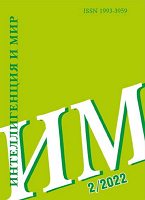Взаимодействие общества и власти в России в 1990—2000-х гг. в зеркале дальневосточной художественной литературы
Interaction between the society and the authorities in Russia in the 1990—2000s in the mirror of far eastern fiction
Author(s): Elena S. VolkovaSubject(s): Political history, Social history, Social Theory, Sociology of Culture, Transformation Period (1990 - 2010), Sociology of Literature
Published by: Ивановский государственный университет
Keywords: Russian Far East; 1990s; 2000; post-Soviet period; democracy; society and authority; civic participation, fiction; artistic intelligentsia;
Summary/Abstract: Perestroika marked the beginning of a new stage in the interaction of society and the authorities, the formation of Western-style democratic institutions is underway in the country. The intelligentsia, including the artistic one, initially acted as the instigator of change, the reflection of writers on the events and processes taking place in the country certainly deserves attention. The subject of analysis is the prose and poetic works of the Russian Far Eastern writers, created mainly in the 1990—2000s. The author seeks to identify the main democratic institutions and practices of civic participation, which are reflected in literary texts, and specific features of the interaction of society and government in the Far Eastern region, to determine the attitude of writers to “democracy in Russian”, to establish how these assessments relate to the prevailing public opinion. The research used discourse analysis, historical synthesis, system-structural, comparative and sociopsychological methods. Analysis of works of art shows that “democratic romanticism” at the turn of the 1980—1990s quickly gives way to disappointment, because the institutions and practices traditional for Western democracies were unable to meet the most important needs of residents of the region. The sharp drop in the living standards of majority of the population and the rise in crime undermined confidence in post-Soviet democracy. Sporadic bursts of political activity do not bring results, strengthening the Far Easterners in the conviction that it is very difficult, almost impossible, to defend their interests with the help of classical democratic institutions and practices. As a result, a significant part of the citizens does not want to enter into a dialogue with the authorities, which, in their opinion, are unable to act as an adequate counterparty. The position of writers in general reflects the opinion of broad strata of the population, consistent with the data of opinion polls and the conclusions of a number of researchers.
Journal: Интеллигенция и мир
- Issue Year: 2022
- Issue No: 2
- Page Range: 52-77
- Page Count: 26
- Language: Russian

